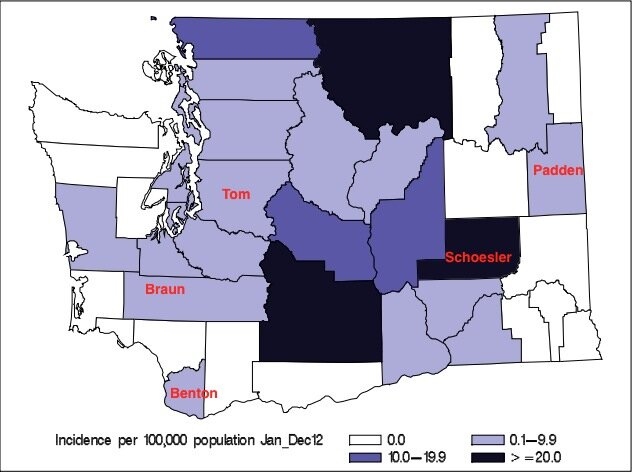
Seattle’s Paid Sick & Safe Time ordinance has been in effect since September 1, 2012, but in the State Senate, Rodney Tom (D*-48th District) and a few Republican senators have already decided to gut the municipal legislation. Freshman John Braun (R-20th District), Schoesler (R-9th District), Padden (R-4th District), and Benton (R-17th) have gotten “turncoat” Tom on board with Senate Bill 5726 (pdf), which seeks to restrict any city’s sick leave program solely to businesses headquartered in that city.
Currently, Seattle’s ordinance extends to “any business with more than four full-time-equivalent employees with at least one employee working in Seattle either part time or full time,” as Seattle Business alerted its readers. (The city designated three tiers, based on business size, to minimize the impact on smaller businesses.) This makes sense because while paid leave is usually considered as an employee benefit, the City of Seattle is treating it as a public health issue.
As the City Council’s Nick Licata wrote in an op-ed: “nearly 40 percent of Seattle’s workers, filling an estimated 190,000 jobs, have no paid sick days. That means many of these workers come to work sick rather than lose their job or a day’s wage — and that puts the public’s health at risk.”

With flu rampant and pertussis epidemic in Washington, now might seem a particularly bad time to work against public health. Viruses, after all, do not care where employers are headquartered. And the recalcitrant senators are making an argument that sounds like they should be doing the opposite of what they are doing.
As Braun is quoted by the Seattle Times, “if this is a good idea, it’s a good idea on the state level, and this is a statewide program, and that’s the Legislature’s purview.” Thus, via Senate Bill 5278 (pdf): “The state of Washington hereby occupies and preempts the entire field regarding paid sick leave and paid safe leave regulation for private employers within the boundaries of the state.”
The problem here, the Seattle Coalition for a Healthy Workforce contends, is that: “Since there is no state standard, Seattle’s law would effectively be kaput — as would any future effort by local citizens to pass a similar local measure.”
When the ordinance was proposed in Seattle (where it passed on the Council by an 8-1 vote), the debate centered largely around the perceived economic impacts on business. Would it be too much of a burden for smaller firms? Would businesses simply relocate to outside the city limits? In response, crafters of the ordinance created the three tiers mentioned earlier, and trusted that the ordinance’s application to employees working in Seattle would help forestall the city being encircled by a ring of infectious commuters. The city auditor has also set up a study to monitor the new ordinance’s impacts, so that it can be evaluated and adjusted as needed.
The Downtown Seattle Association, which was concerned about keeping Seattle business-friendly, just released its 2013 State of Downtown Report. Their press release reads: “In her State of the Downtown address, DSA President & CEO Kate Joncas highlighted Downtown’s successes in 2012 — including the residential development boom, the largest employment increase in the region, major brands choosing to locate Downtown and a thriving arts and entertainment sector.” It’s early on, but it seems clear that the sky has not fallen.
The senators have opened a can of worms, which their constituents may not thank them for. Public support in Seattle for the ordinance ran at about 70 percent, according to polls. Absent evidence that paid sick leave isn’t a good idea — they’ve so far proffered none — they’re in fact creating an opportunity for sick leave supporters to take their fight to the Capitol.
